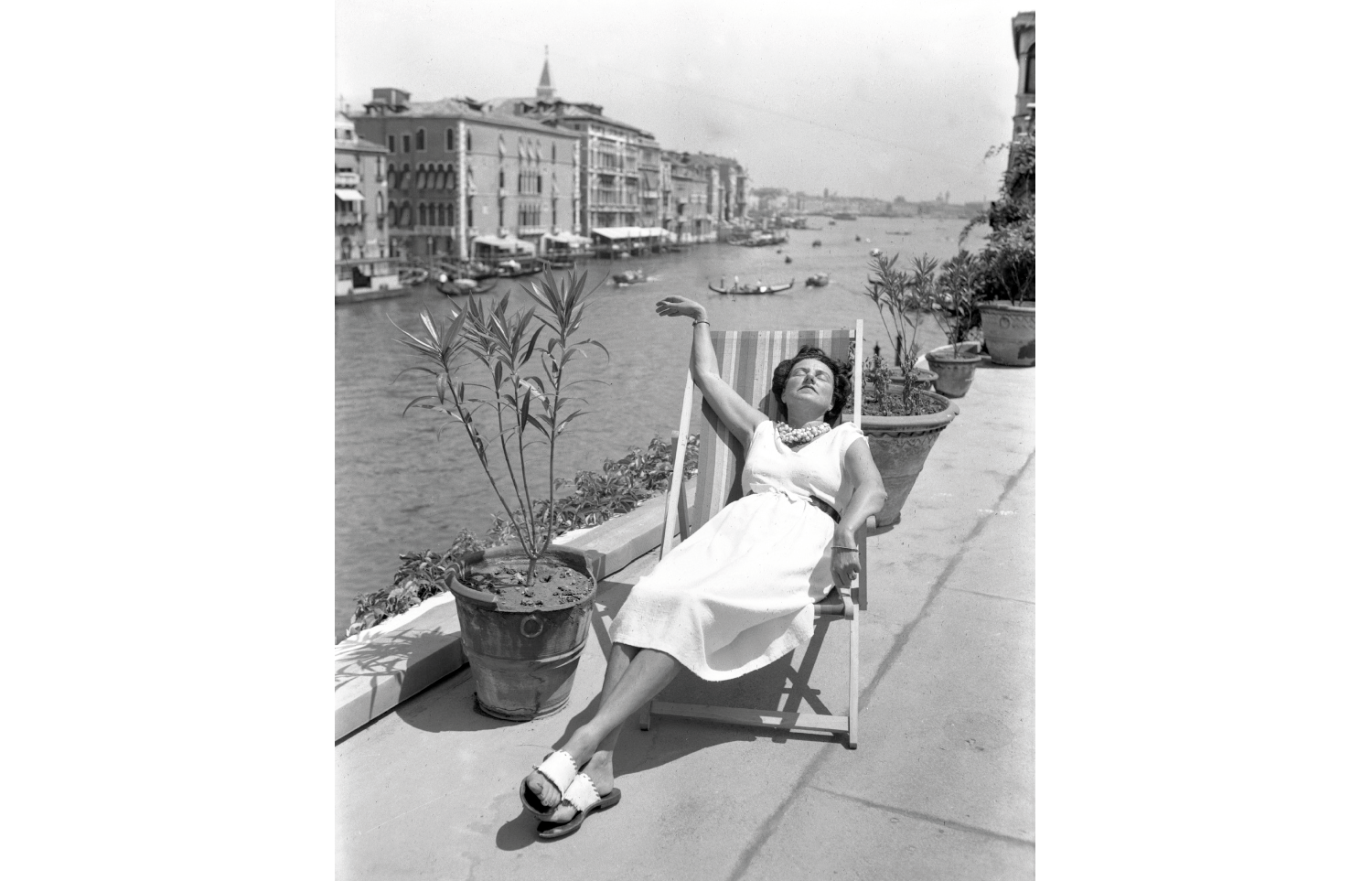On 24 April 1937 Marguerite Guggenheim – known as Peggy – of Yew Tree Cottage, Hurst was booked by a certain PC Dore for driving an unlicensed vehicle through nearby Petersfield. What was the founder of the famous Venice museum doing in a market town in Hampshire? It’s a long story, vividly told in an exhibition marking the 25th anniversary of the opening of Petersfield Museum on the site of the former police station and courthouse where she paid her £1 fine.
‘Peggy,’ said a friend, ‘is absolutely revolting about sex. Delicacy is unknown to her’
In the 1930s the Jewish-American heiress, who had lost her father Benjamin on the Titanic, was rattling around Europe with a fast crowd of writers and artists. Divorced from Laurence Vail, the father of her children Sindbad and Pegeen, and mourning the death of her partner John Holms in 1934, she sought consolation with the handsome left-wing editor Douglas Garman, five years her junior. She was one of those gals who can’t live with men, can’t live without them. ‘Peggy,’ said her friend Emily Coleman, ‘is absolutely revolting about sex. Delicacy is unknown to her.’
In the autumn of 1934, Garman, then living with his mother in South Harting, found Peggy an Elizabethan house in the nearby village of Hurst. Cold, draughty and initially powered by a generator, Yew Tree Cottage was a change from the New York mansions and Paris flats she was used to, but she settled into rural domestic life. The house became home to Pegeen, Garman’s daughter Debbie and Sindbad during school holidays when, to his mother’s mystification, he developed ‘a great passion for that exceedingly dull game’, cricket.
It was ‘very good for me to be a simple woman & do normal domestic things for a change’, Peggy decided. She read Proust in bed wearing fur gloves; Garman read Marx in a study he had built in the garden.








Comments
Join the debate for just £1 a month
Be part of the conversation with other Spectator readers by getting your first three months for £3.
UNLOCK ACCESS Just £1 a monthAlready a subscriber? Log in